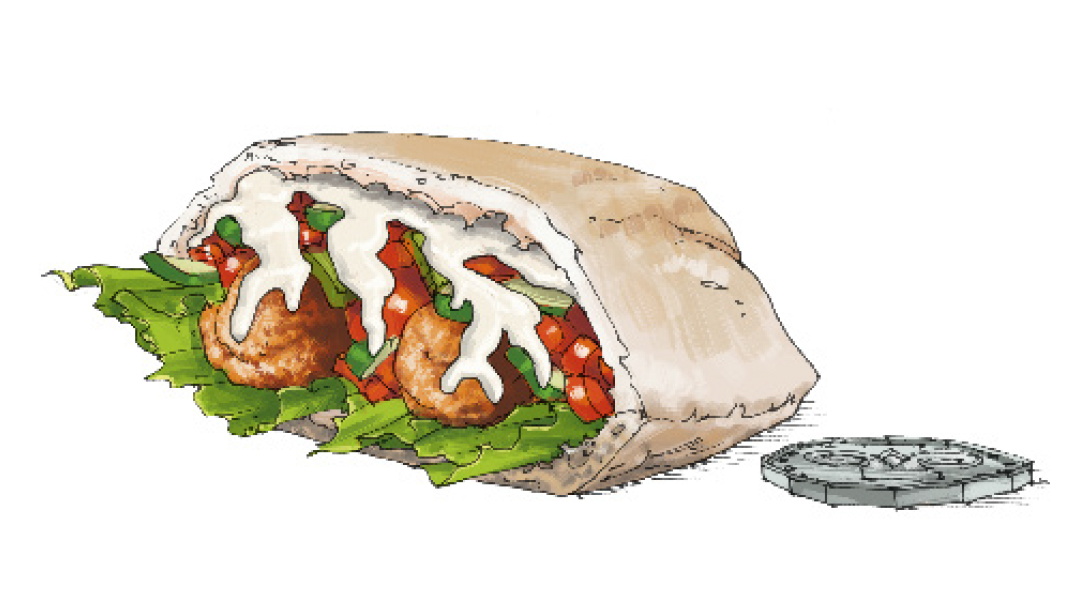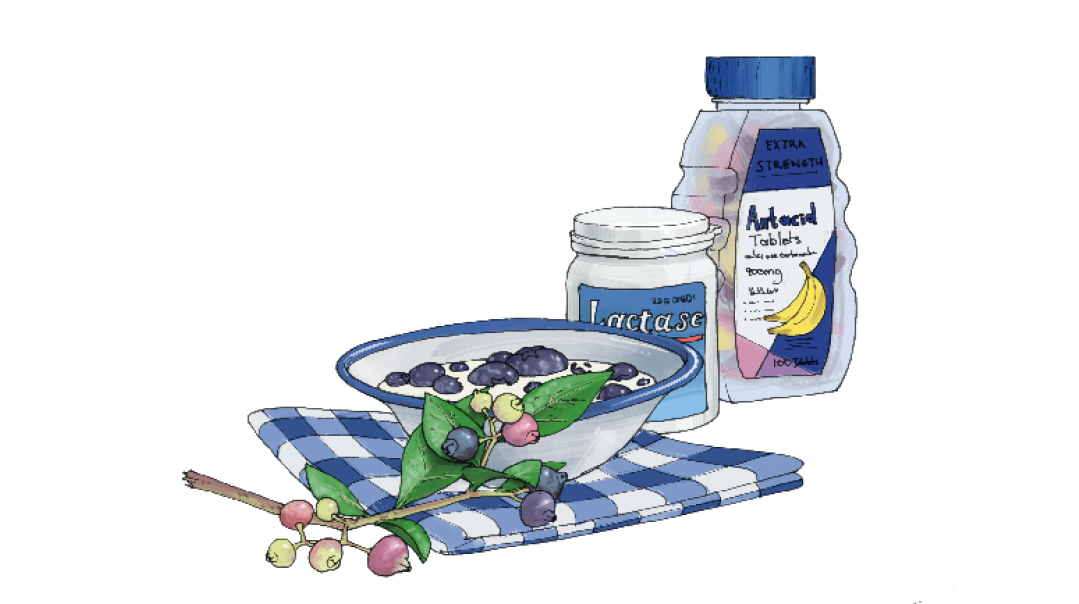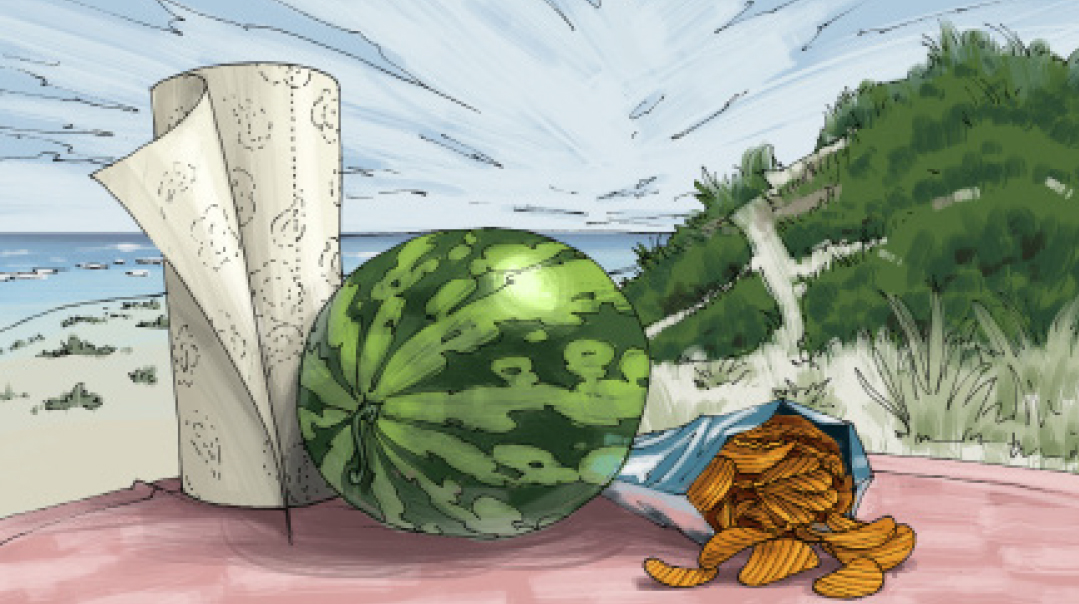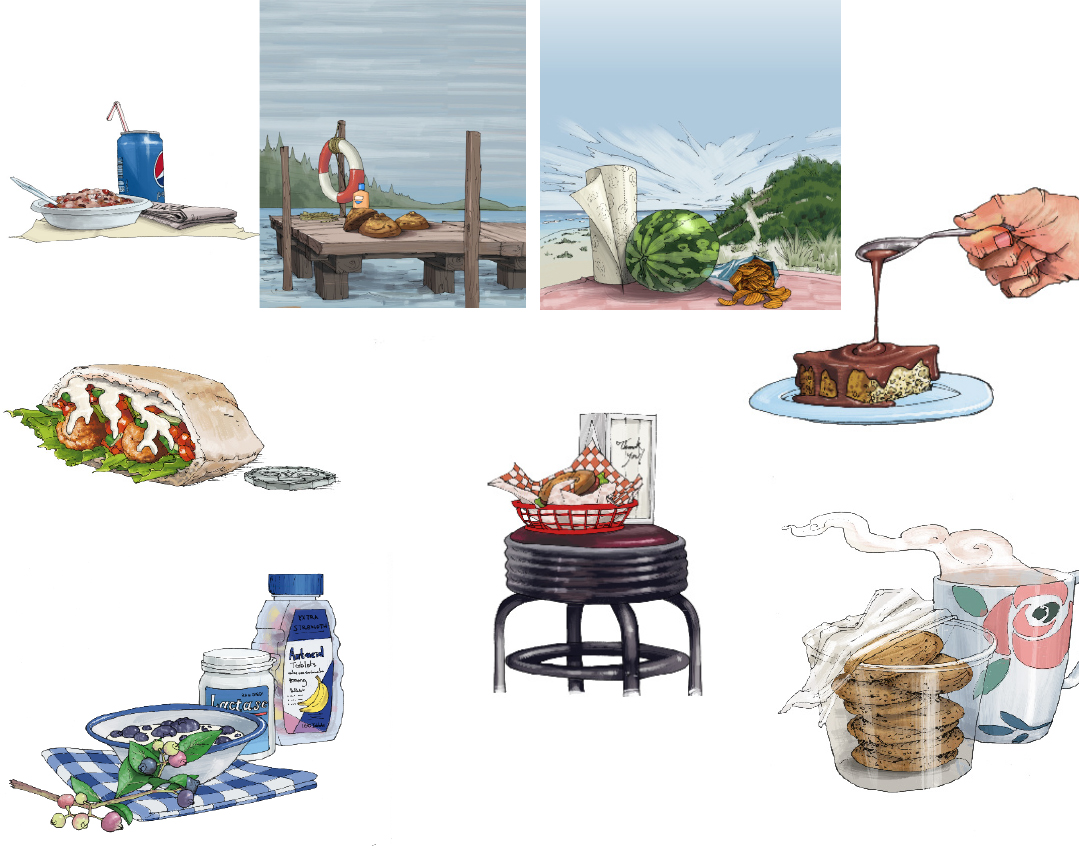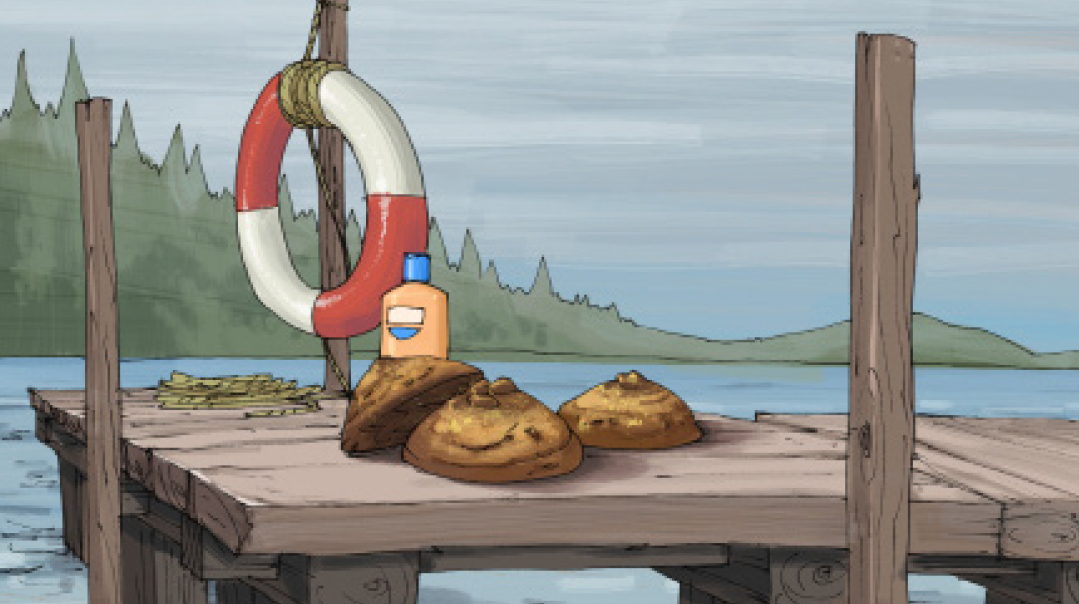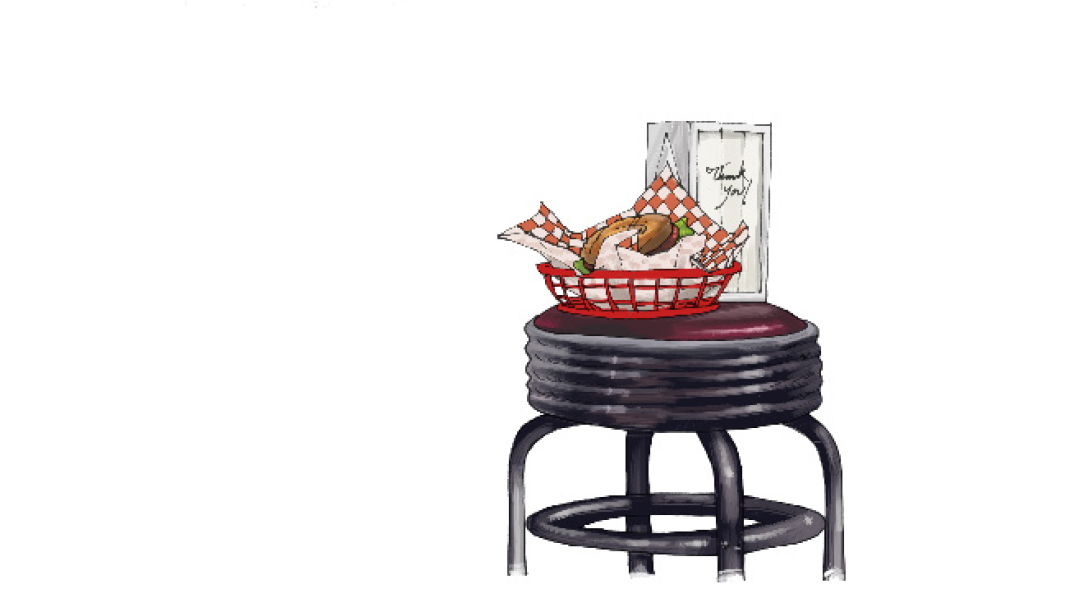The Promise Is in the Pudding
| September 29, 2020Mrs. Drukatz’s pudding was not mere pudding; it held a story
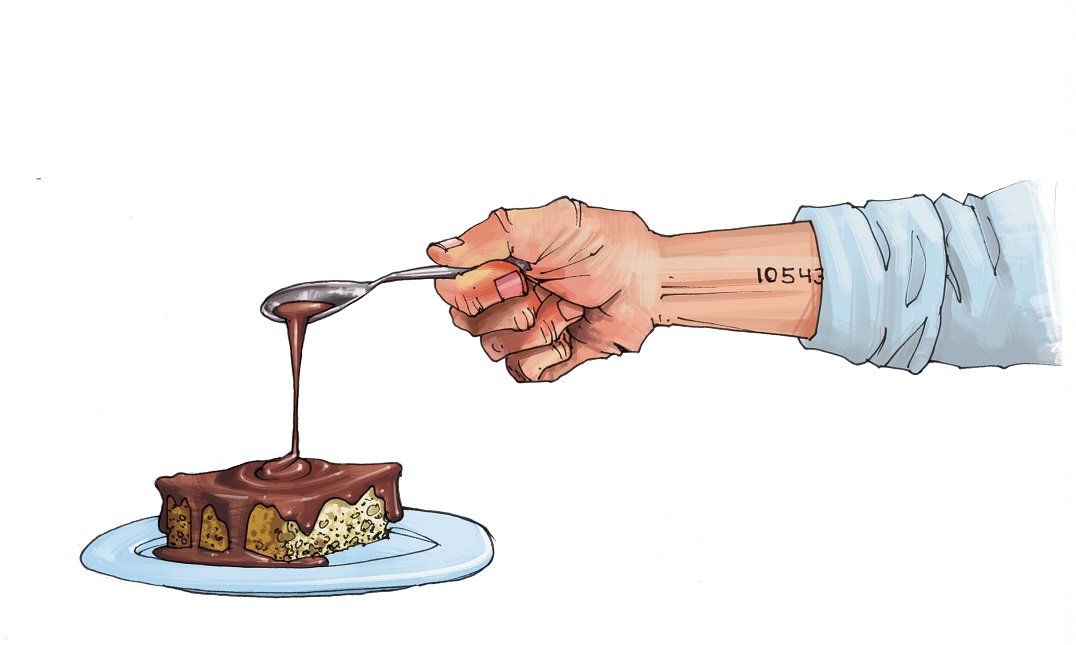
Illustration: Dov-Ber Cohen
Eavesdrop on any conversation among old-time Londoners between the ages of 60 to 90 reminiscing about Yesodey Hatorah School or Agudah Boys’ Camp, and you’ll be sure to hear the name Mrs. Chava Drukatz a”h.
“Boyyerz, I made you chipperz,” she’d call every day at noon. And the boys came running, because those chips, which she hand-sliced, fried, and served by the bucket, were out of this world, just like all of her legendary cuisine.
She was their chef for years, and apparently no cooking has ever come close – the chocolatey yeast cake on erev Shabbos, the shepherd’s pie with its shiny crust, the mouthwatering goulash, and the delicious fish balls (yes, fish balls).
And then there was the chocolate pudding.
Ahhh, Mrs. Drukatz’s chocolate pudding—a piece of heaven. For years, YHS alumni have searched for the recipe, but have yet to recreate it. Once, a letter writer wrote to a Stamford Hill advertiser offering a crisp £100 in return for the elusive Mrs. Drukatz Chocolate Pudding Recipe. He wrote that the mere memory brings tears to his eyes.
It is not as ridiculous — or gluttonous — as it sounds. Mrs. Drukatz’s pudding was not mere pudding; it held a story.
Mrs. Drukatz’s husband was murdered by the Nazis. Interned in Auschwitz, this mother of two witnessed in helpless horror how children were starved, their skin stretched taut over their bony frames. She could not bear the suffering and vowed to Hashem that if she survived the war, she would spend her days nourishing Yiddishe kinderlach so they would never go hungry.
When she came over to England after the war with her son and daughter, she rolled up the sleeves on her tattoo-numbered arms and took a job as cook in Yesodey Hatorah School. Her condition for accepting the job was that she be allowed to serve the children seconds. The principal, Rabbi Shmiel Shmelke Pinter zt’l, remembering the pre-war poverty of his own childhood in Poland, was touched by her care and agreed, even though the volume of food she served became a huge expense for the school.
Rabbi Pinter’s daughter, Mrs. Chani Berger, remembers asking her father why he allowed the extra financial burden, especially since many children couldn’t even pay the minimum fees. Couldn’t the students bring sandwiches instead?
“No,” she recounts, “my father wanted them to have a hot meal, especially those who otherwise wouldn’t have any at home.” Mrs. Berger still uses the chicken soup tip she learned from Mrs. Drukatz: to add a spoonful of sugar.
In 1974, Mrs. Drukatz moved into the home of Avrohom Moshe and Malky Gluck (nee Lok), rising at six every morning and returning well after the school day ended. She went beyond the call of duty, staying on after five to prepare jam sandwiches for the weary boys who still had an hour to go.
Mrs. Drukatz also stayed to serve lunch, even though her official duties were finished, so she could watch the children enjoy her food. Nothing gave her greater nachas than seeing her promise fulfilled.
In those days, there wasn’t an abundance of food. Children in the post-war generation were typically admonished for overeating or indulging, yet Mrs. Drukatz was different; she would urge the kinderlach to come for more. “Vilst hoben noch?” she’d ask. Then she’d turn to the staff: “Der children should eat as much as dey can, der children should be happy.”
“She looked like an angel,” recalls one student. “She wore her kerchief in a unique way, she dressed all in white, and her face literally shone.”
The pudding was special: Mrs. Drukatz would stand dwarfed behind long steel containers, her diminutive figure wrapped in a white apron, doling out squares of deliciousness. The pudding had a sublime, cake-like texture that had steamed for hours in the oven. The topping was its crowning glory – a luscious hot chocolate glaze.
“I remember my mouth watering, watching her ladle the hot sauce carefully onto the pudding,” one alumnus recounts. “She did it with such joy, never getting annoyed with our excitement. She was pure goodness.”
“It was amazing,” remembers another. “Amaaazing. What I would do for another portion!”
This reaction was consistent among the alumni I spoke to, no matter where their lives had taken them in the gap between high-school and grandparenthood – or even great-grandparenthood.
And, astonishingly, they remember Mrs. Drukatz’s menu rotation exactly.
“Don’t forget,” said another alumnus, now a grandfather, “we grew up in an era of corporal discipline, so the sweet memory of Mrs. Drukatz’s dinners stands out. I’m sure her generosity and kindheartedness was mashpia on the boys.”
“She was the kindest cook there ever was,” says Mr. Yossi Schleider, YHS alumnus and camper-cum-director of Agudah Camp. “She just wanted the children to be happy.”
It wasn’t just pudding; it was a labor of love. But more than that, it was a promise from Auschwitz fulfilled.
Mrs. Drukatz’s Pudding Recipe
Kindly recorded for posterity and shared by Malky Gluck
Pudding
12 oz self-rising flour
4 eggs, lightly beaten
A few drops vanilla extract
7 oz margarine
6 oz caster sugar (superfine sugar)
About ½ cup water
Sieve flour. Cream margarine and sugar, then add eggs, one at a time, and vanilla extract. Fold in the flour, adding 1 or 2 Tbsp water, if necessary, for a smooth consistency. Pour into greased container and cover with parchment paper. Place the container in a water bath in an oven, as Mrs. Drukatz didm OR in a pressure cooker on the steam setting or in a double boiler on a medium flame. Cook without opening the pot. Remove after 1.5 hours—it will come out like cake. While it’s cooling, prepare the sauce.
Sauce
Pint of water, boiled
2 tsp cornstarch/custard
2 tsp cocoa
Few drops vanilla extract or sugar
Pinch sugar
Mix cornstarch and cocoa. Put water in pot or saucepan and stir in cocoa mixture. Simmer while stirring for 5 minutes. Add sugar and vanilla to taste.
Serve pudding with warmed chocolate sauce poured over it.
Tip: Double the sauce first time around. There still won’t be enough!
C.S.Teitelbaum writes for the world, about the world, from her corner of the world, in London.
(Originally featured in Mishpacha, Issue 830)
Oops! We could not locate your form.

